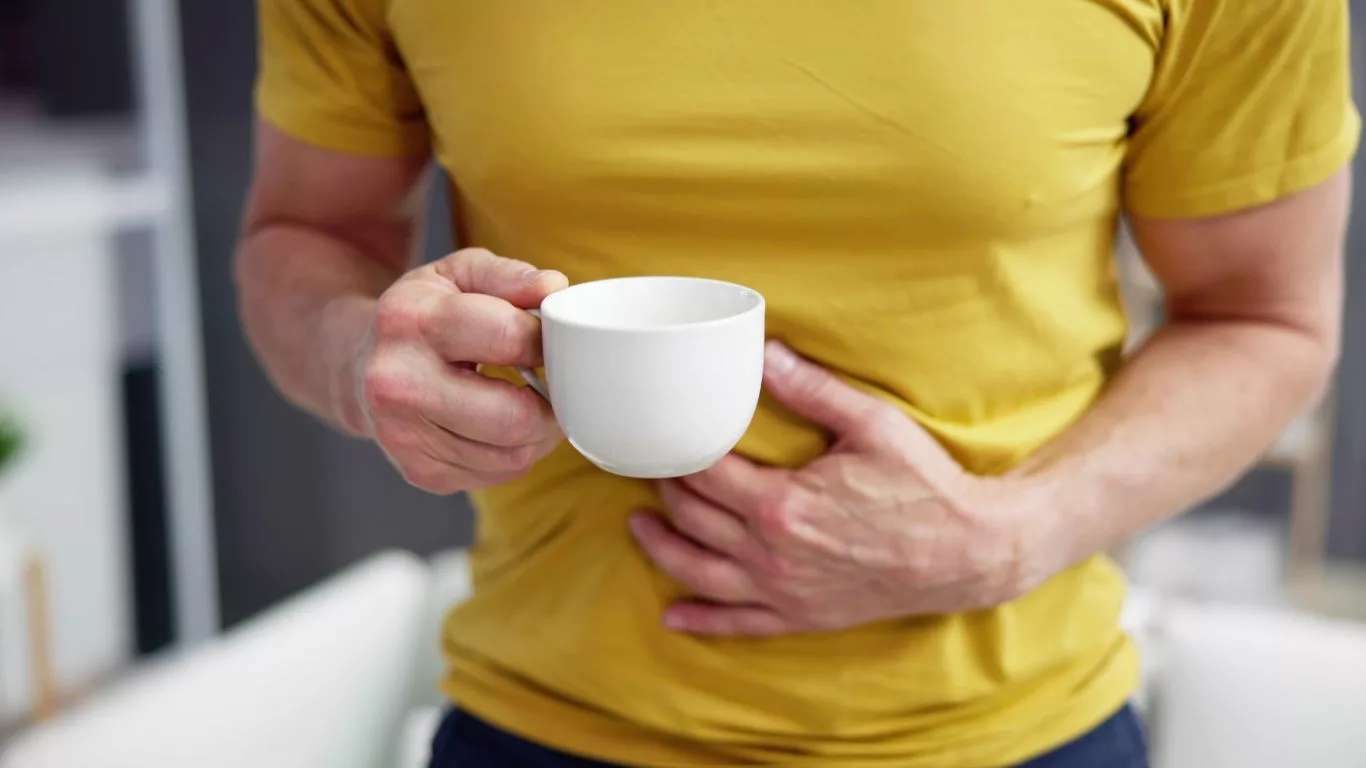Best Non Acidic Coffee for Acid Reflux That Won’t Burn You
For anyone dealing with acid reflux, you know how tricky mornings can be. I used to dread that first cup of coffee — not because I didn’t love the taste, but because the burn that followed wasn’t worth it. If you’re anything like me and want to keep enjoying your daily brew without triggering GERD symptoms, you’re not alone. Fortunately, there’s a solution: non-acidic coffee. It’s a game-changer for people with acid reflux, and this guide is here to help you find the perfect cup that doesn’t come with discomfort.
Why Coffee Can Be a Problem for Acid Reflux

For many, coffee is a non-negotiable part of their day. But for those of us with GERD or chronic acid reflux, it can be one of the worst triggers. That morning caffeine kick often comes with a side of heartburn, chest tightness, or that irritating throat burn. Why?
- Coffee stimulates acid production — even decaf can do this.
- It relaxes the lower esophageal sphincter (LES), letting acid creep back up your esophagus.
- Some coffee blends, especially darker roasts, are more acidic, which can aggravate the stomach lining.
And if you’re already dealing with something like silent GERD, the problem is often worse because the symptoms aren’t always obvious until damage is done.
What Makes Coffee “Non-Acidic”?

“Non-acidic” doesn’t mean flavorless or watered-down. In fact, many low-acid coffees are surprisingly rich and smooth. What sets them apart is the roasting technique, bean origin, and even brewing method.
Low-Acid Bean Origins
Beans from regions like Sumatra, Peru, or Brazil naturally have lower acid levels. These beans are usually grown at lower altitudes where the climate is warmer — a key factor in reducing the acidity in the final roast.
Special Roasting Methods
Roasters often use slow roasting or steam-processing to neutralize excess acids without compromising flavor. Darker roasts tend to be lower in acid, but not always — it depends on the method.
Brewing Technique Matters
- Cold brew: Known to be up to 70% less acidic than hot-brewed coffee. I switched to this a couple of years ago, and it’s honestly been the most reflux-friendly change I’ve made.
- French press: Gives you control over the brewing time, which helps avoid extracting too many acids.
Best Non-Acidic Coffee Options (That Actually Taste Good)

There’s no shortage of “low acid” labels on coffee these days, but not all are created equal. Here are a few that many acid reflux sufferers, myself included, swear by:
- Puroast Low Acid Coffee – Their French roast is bold but incredibly stomach-friendly. It’s a regular on my kitchen shelf.
- Simpatico Coffee – Sourced from Mexico and slow-roasted. Surprisingly smooth with earthy undertones.
- Lifeboost Coffee – USDA organic, single-origin, and tested for low acidity. It’s a bit pricier but feels more like a treat than a daily brew.
Just be mindful that even with low-acid coffee, your body might react differently. Start with small servings and see how you feel.
Other Ways to Make Your Coffee Routine GERD-Friendly

Even non-acidic coffee can cause issues if the rest of your routine works against it. Over time, I’ve learned a few tricks that have made a big difference:
1. Don’t Drink It on an Empty Stomach
This one’s huge. I used to down a cup first thing in the morning, but that almost always ended in regret. Pair your coffee with a small GERD-friendly breakfast — oatmeal or a banana works wonders.
2. Skip the Sugar and Cream
Dairy and high-fat creamers can trigger reflux. Opt for unsweetened almond or oat milk. And if you need sweetness, go light — or use a reflux-safe option like stevia.
3. Keep Portions in Check
I used to drink two or three cups a day. Cutting back to one made a world of difference. Remember, it’s not just what you drink but how much and when you drink it.
What the Experts Say

According to the Mayo Clinic, while individual triggers vary, reducing acidic and caffeinated beverages can play a major role in managing GERD symptoms. The Cleveland Clinic also recommends cold brew coffee and low-acid alternatives for patients experiencing chronic acid reflux symptoms.
If you’re still struggling to manage GERD despite switching your coffee, you might want to explore a more holistic lifestyle change. This guide to GERD lifestyle changes offers simple, actionable tips that made a noticeable difference in my day-to-day life.
Delicious GERD-Friendly Coffee Recipes You’ll Actually Want to Drink

After a lot of trial and error (and more than a few mornings gone wrong), I’ve finally nailed down a few go-to coffee recipes that don’t spark acid reflux. You can still have something warm, comforting, and flavorful — no plain black coffee necessary.
Cold Brew Vanilla Oat Latte
- 1 cup cold brew coffee (low acid)
- 1/2 cup oat milk (unsweetened)
- 1/4 tsp vanilla extract
- Optional: pinch of cinnamon (skip if sensitive)
Shake it all together in a jar or blend with ice for a smooth treat. Honestly, this tastes like a café drink without the burn — and it’s been my go-to summer sip.
Warm Coconut Cinnamon Brew
- 3/4 cup low-acid hot coffee
- 1/4 cup coconut milk
- Dash of cinnamon (test tolerance)
- Drizzle of maple syrup
This one’s perfect for chilly mornings. Coconut milk adds that creamy texture without triggering reflux, and maple syrup is gentle on the stomach compared to processed sugar.
If you’re looking for even more soothing options, this guide on acid reflux-friendly smoothies is a goldmine. I use it when I want a morning drink that’s coffee-free but still feels like a treat.
Setting Up a GERD-Safe Coffee Bar at Home

If you’re serious about avoiding acid reflux, having the right setup at home can save you a lot of trouble (and medical bills). Mine’s not fancy, but it’s stocked with reflux-safe staples that keep my mornings stress-free.
What to Include:
- Low-acid coffee beans – Choose your favorite and stock up in small batches for freshness.
- Cold brew pitcher or French press – Easy brewing methods that reduce acidity.
- Plant-based milk – Oat, almond, or coconut. I switch between them depending on the flavor profile I want.
- Natural sweeteners – A small jar of raw honey or maple syrup works great.
- Glass jars with labels – Not just for aesthetics. Keeps things organized and less overwhelming first thing in the morning.
It may seem like a small thing, but setting up this little bar honestly made my mornings smoother — both literally and reflux-wise.
When Coffee Still Triggers Symptoms — What Then?

Let’s be real. Even with the best low-acid options and careful recipes, some days are just off. Stress, poor sleep, or a heavy dinner the night before can mess with your stomach, making even “safe” coffee feel like too much.
If that’s you, don’t ignore it. Repeated discomfort could mean your GERD needs more attention. I used to just brush it off until a specialist helped me realize how unmanaged reflux can quietly damage the esophagus.
This guide to proper GERD diagnosis is worth a look if you’re not 100% sure what’s causing your symptoms — especially if they’re happening regularly even with low-acid choices.
Also, take a peek at this resource from the National Institute of Diabetes and Digestive and Kidney Diseases (NIDDK). It lays out the clinical signs and treatment approaches clearly, without overcomplicating things.
Other GERD-Safe Morning Drinks

Maybe you’re just done with coffee altogether — I had a phase like that too. Here are a few GERD-safe alternatives that helped me during my break-up with coffee:
- Chamomile tea – Gentle on the gut, especially before or after meals.
- Warm water with honey and ginger – If tolerated, ginger can help soothe digestion. Just use it sparingly.
- Alkaline water – It won’t replace your morning pick-me-up, but it helps with hydration and stomach balance.
- Oat milk latte (without coffee) – Steamed oat milk with cinnamon and a drop of vanilla is surprisingly satisfying.
And if you’re feeling adventurous, I’d recommend exploring ginger tea for acid reflux. It’s one of the few things I still reach for when I’ve overdone it at dinner the night before.
Key Takeaway: You Don’t Have to Give Up Coffee — Just Be Smart About It

Dealing with acid reflux doesn’t mean you need to give up on the joys of a great cup of coffee. It’s just about choosing your beans wisely, brewing smarter, and being aware of what your body’s telling you. Once I made the switch and stuck with it, mornings became something I looked forward to again — instead of something I feared.
Want to dive deeper into creating a GERD-friendly lifestyle that actually sticks? This GERD lifestyle changes guide helped me fine-tune more than just my coffee game — and I can’t recommend it enough.

Camellia Wulansari is a dedicated Medical Assistant at a local clinic and a passionate health writer at Healthusias.com. With years of hands-on experience in patient care and a deep interest in preventive medicine, she bridges the gap between clinical knowledge and accessible health information. Camellia specializes in writing about digestive health, chronic conditions like GERD and hypertension, respiratory issues, and autoimmune diseases, aiming to empower readers with practical, easy-to-understand insights. When she’s not assisting patients or writing, you’ll find her enjoying quiet mornings with coffee and a medical journal in hand—or jamming to her favorite metal band, Lamb of God.







